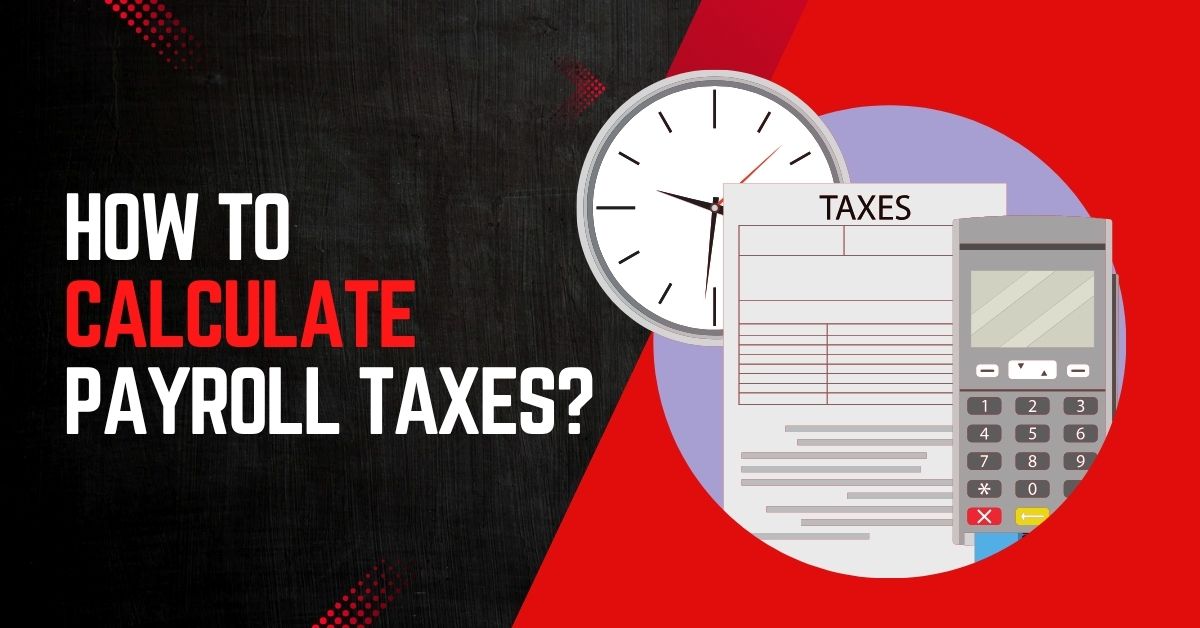How to Calculate Payroll Taxes?
Running an organization means managing various tasks, however, one of the most significant (and legally necessary) things is being sure that you have done the payroll taxes calculation right. It is very important that payroll taxes are handled properly no matter how big your team is to ensure that there are no legal issues and financial mistakes etc.
What Are Payroll Taxes?
Payroll taxes are the taxes that employers must subtract from their employees’ salaries and, usually, they also pay to the government as the employees’ representatives. These include:
- Federal income tax
- Social Security tax
- Medicare tax
- State and local income taxes (if applicable)
- Unemployment taxes (FUTA and SUTA)
Employers are also responsible for matching certain payroll taxes, like Social Security and Medicare.
Why It’s Important to Calculate Payroll Taxes Accurately
Mismanaging payroll taxes can lead to serious consequences, including:
- IRS penalties and fines
- Interest on unpaid taxes
- Legal trouble or audits
- Damage to employee trust
Accurate payroll tax calculations ensure compliance with tax regulations and maintain a n error free payroll process.
Steps to Calculate Payroll Taxes
1. Determine Gross Pay
To figure out payroll taxes first you have to find out gross pay. This is the total amount an employee received before any deductions:
Gross Pay = Hours Worked × Hourly Rate (for hourly workers)
Or Gross Pay = Annual Salary ÷ Pay Periods (for salaried workers)
Also you have to consider the gross income including the bonuses, commissions, and overtime pay.
2. Withhold Federal Income Tax
Employ the IRS tax tables from IRS Publication 15-T and the employee’s W-4 form to establish the amount of income tax to be withheld from the employee’s wages. The determined amount depends on the following factors:
- Filing status
- Number of dependents
- Additional withholding requests
Such a step is definitely indispensable for fulfilling federal payroll tax regulations correctly.
3. Social Security and Medicare Taxes (FICA)
FICA is a government program financed by a payroll tax that provides benefits for employees. This program includes both]
- Social Security tax: 6.2% (employee) up to the annual wage limit
- Medicare tax: 1.45% (employee), plus an additional 0.9% for high earners
As an employer, you are required to provide a matching amount.
4. Account for State and Local Payroll Taxes
If there is a state or local income tax where the person lives, then this tax must be deducted as well, of course. Rates and rules differ so check with the tax department of your state where you plan to comply with regulations.
5. Unemployment Taxes (FUTA and SUTA)
Such payroll taxes are covered by the employer alone:
- FUTA (Federal Unemployment Tax Act): 6.0% on the first $7,000 of each employee’s wages (with possible credits for state unemployment taxes)
- SUTA (State Unemployment Tax Act): Varies by state and employer experience rate
6. Deduct Any Additional Withholdings
Don’t forget about voluntary deductions such as:
- Retirement plan contributions (401(k), etc.)
- Health insurance contributions
- Wage garnishments
They lower the employee’s take-home pay but generally do not change your payroll tax liabilities.
Tools to Help You Calculate Payroll Taxes
Attempting to calculate payroll taxes manually can result in mistakes, especially if your business is expanding. A lot of businesses rely on payroll software or services that provide:
- Automated tax computation
- Current tax rate changes
- Filing and payment via electronic means
- Notice of compliance and reports
This saves time and reduces the risk of making tax-related mistakes.
Common Payroll Tax Mistakes to Avoid
- Missing filing deadlines
- Not updating tax rates or W-4 information
- Miscalculating overtime and bonuses
- Ignoring local payroll taxes
- Not paying withheld taxes on time
Just minor mistakes can cause big problems and that is why consistency and accuracy are very important.
Final Thoughts
When you pay payroll taxes correctly, you’re not only compensating your employees, but you’re also safeguarding your business. Every deduction counts, from social security to unemployment tax. Whether you handle payroll manually or with a service, knowing how payroll taxes function is crucial.
In case the whole thing gets too much for you, consider using payroll software or working with a payroll provider who can assist you in automating and managing the process. That way, you’ll remain compliant, and you’ll have more time to concentrate on expanding your business.
Also Read:
- Who Is Responsible If a Payroll Check Bounced?
- How to Reconcile Payroll?
- How to Fix Payroll with AI?
- Understanding Payroll Checking Account Forms at Credit Unions
- Who is a Payroll Specialist?
Frequently Asked Questions
What are payroll taxes and who pays them?
Payroll taxes are the taxes taken out of an employee’s paycheck and paid to the government. Employers also match some of these, like Social Security and Medicare. These taxes include federal income tax, FICA, and sometimes state or local taxes, depending on where your business operates.
How do I calculate payroll taxes correctly?
Start by calculating gross pay, then deduct federal income tax using IRS guidelines. After that, calculate Social Security, Medicare, and any applicable state or local taxes. Don’t forget unemployment taxes and any extra deductions like health insurance or retirement plans. Always double-check your numbers.
What happens if payroll taxes are calculated wrong?
Incorrect payroll tax calculations can lead to IRS penalties, legal trouble, or audits. You may also lose employee trust. Mistakes like late payments or missed deductions can become expensive, so accuracy and timely filing are extremely important for every business.
Do all states have payroll taxes?
No, not all states have income or payroll taxes. Some states like Texas or Florida don’t require state income tax, while others do. You should always check your local state laws to make sure you’re following the correct tax rules where your business is located.
Can payroll software help with tax calculations?
Yes, payroll software makes payroll taxes much easier by automatically calculating deductions, applying the latest tax rates, and filing reports for you. It helps avoid mistakes and saves time, especially for small businesses that don’t have a full-time accountant or HR team.


